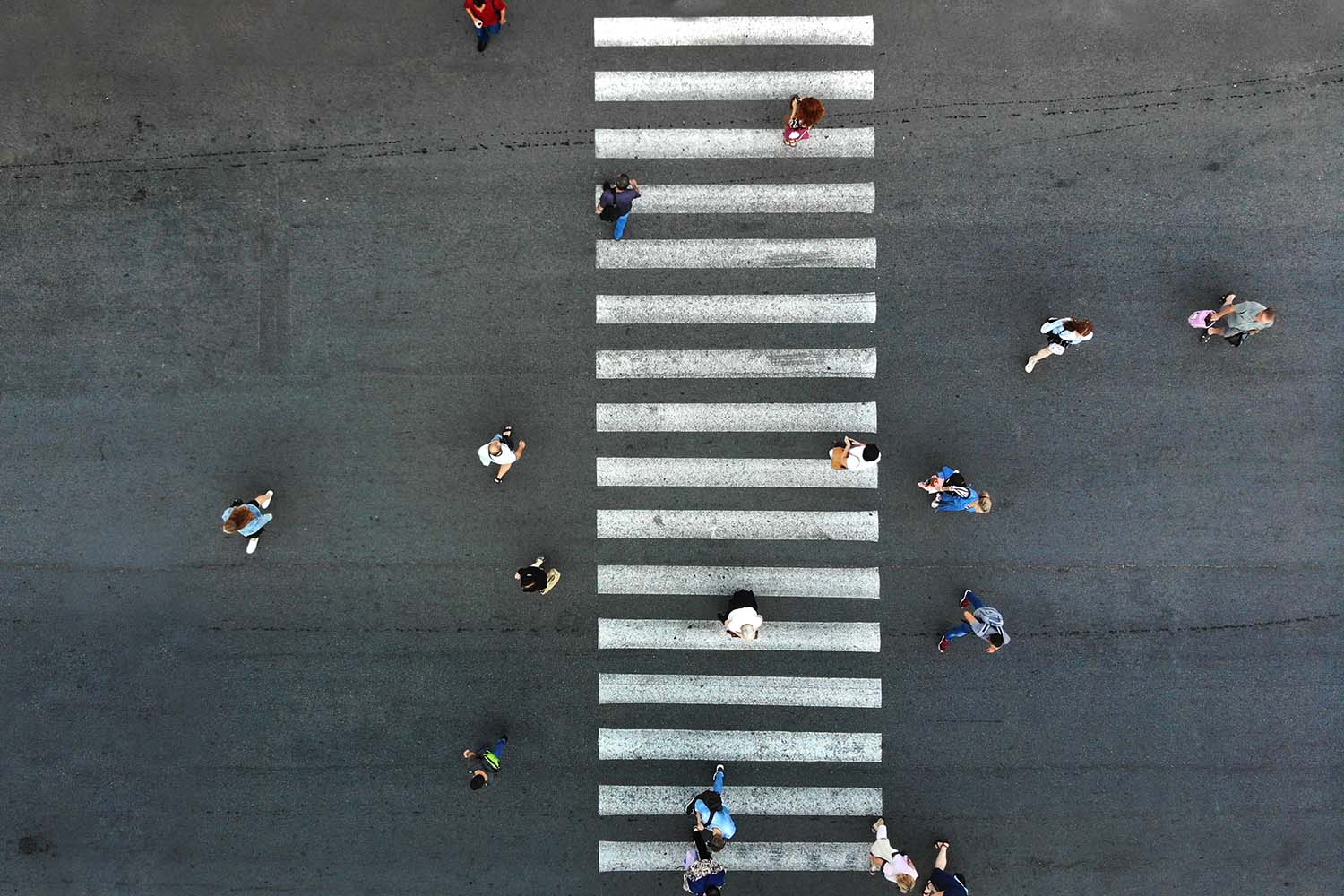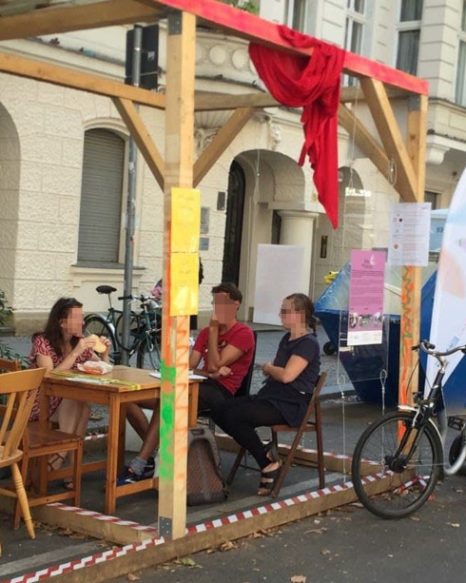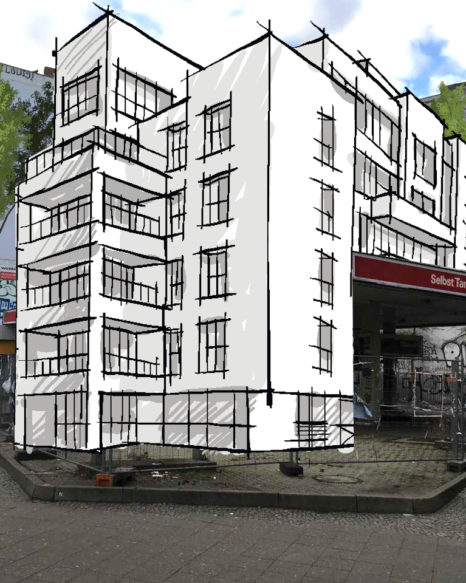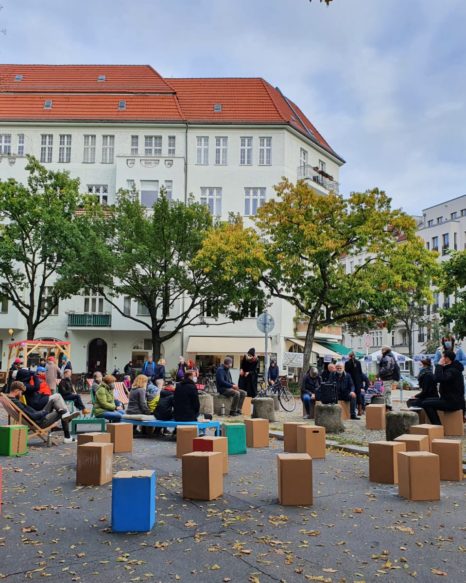Social representation, acceptance and behavioural change

Decades of car-centric urban planning have left their mark on Berlin: Private motorized transport accounts for 60 per cent of land usage, but just 26 per cent of the modal share. In contrast, bicycle traffic accounts for four per cent of land use, but its modal share is 18 per cent (Creutzig et al., 2020; Gerike, Hubrich, Ließke, Wittig & Wittwer, 2020). In attempts to address this spatial injustice, new concepts are being developed and implemented that will redistribute public (street) space and access. One example is the creation of protected and pop-up bike lanes, which often involves converting parking spaces or a lane for motorized transport into a bike lane. Other measures redistribute traffic space to other modes of transportation while also enabling climate adaptation measures (e.g., unsealing, new plantings) or creating space for play areas and non-commercial usage (socializing, clothing exchanges, local recreation, and cultural events). Footpath extensions known as parklets, for example, convert 11 m² car parking spaces for use by pedestrian traffic and locals. Superblocks, which originated in Barcelona and divert through traffic around residential neighbourhoods, also create accessible, pedestrian-centric public spaces. But the reallocation of public space is controversial and often fraught with conflict (e.g., Aldred et al., 2021; López, Ortega & Pardo, 2020). This dissertation examines the acceptance of measures that redistribute urban space and the psychological factors that impact acceptance. In a first step, the Technology Acceptance Model (Huijts, Molin & Steg, 2012) was used to identify the perceived fairness, affective response, and social norm as the critical factors for acceptance. This shows that people are more likely to accept interventions such as superblocks if they perceive this redistribution of public space to be fair, have a positive emotional response, and the intervention elicits support in their social context. Further research therefore focused in particular on perceived fairness and the affect associated with the intervention, as well as the influence of the social norm. The influence of distributive fairness, procedural fairness, and social norm on affect, fairness judgments, and acceptance is systematically examined in a factorial survey experiment. The perceived risk of gentrification and socio-demographic variables are also captured as control variables. Parallel to this, in-depth interviews are being conducted to explore the perceptions of persons who opposed or expressed critical views towards an intervention in a real-world experiment that improved access to and redistributed public space.
Aldred R, Verlinghieri E, Sharkey M et al. (2021) Equity in new active travel infrastructure: a spatial analysis of London’s new Low Traffic Neighbourhoods. Center for Open Science
Creutzig, F., Javaid, A., Soomauroo, Z., Lohrey, S., Milojevic-Dupont, N., Ramakrishnan, A., ... & Zausch, J. M. (2020). Fair street space allocation: ethical principles and empirical insights. Transport Reviews, 40(6), 711-733.
Gerike, R., Hubrich, S., Ließke, F., Wittig, S., & Wittwer, R. (2020). Mobilitätssteckbrief für Berlin (SrV 2018 –Mobiltät in Städten, p. 8). TU Dresden. Retrieved from https://www.berlin.de/senuvk/verkehr/politik_
planung/zahlen_fakten/mobilitaet_2018/download/Berlin_Steckbrief_Berlin_gesamt.pdf
Huijts N, Molin E, Steg L (2012) Psychological factors influencing sustainable energy technology acceptance: A review-based comprehensive framework. Renewable and Sustainable Energy Reviews 16:525–531. https://doi.org/10.1016/j.rser.2011.08.018
López I, Ortega J, Pardo M (2020) Mobility Infrastructures in Cities and Climate Change: An Analysis Through the Superblocks in Barcelona. Atmosphere 11:410







